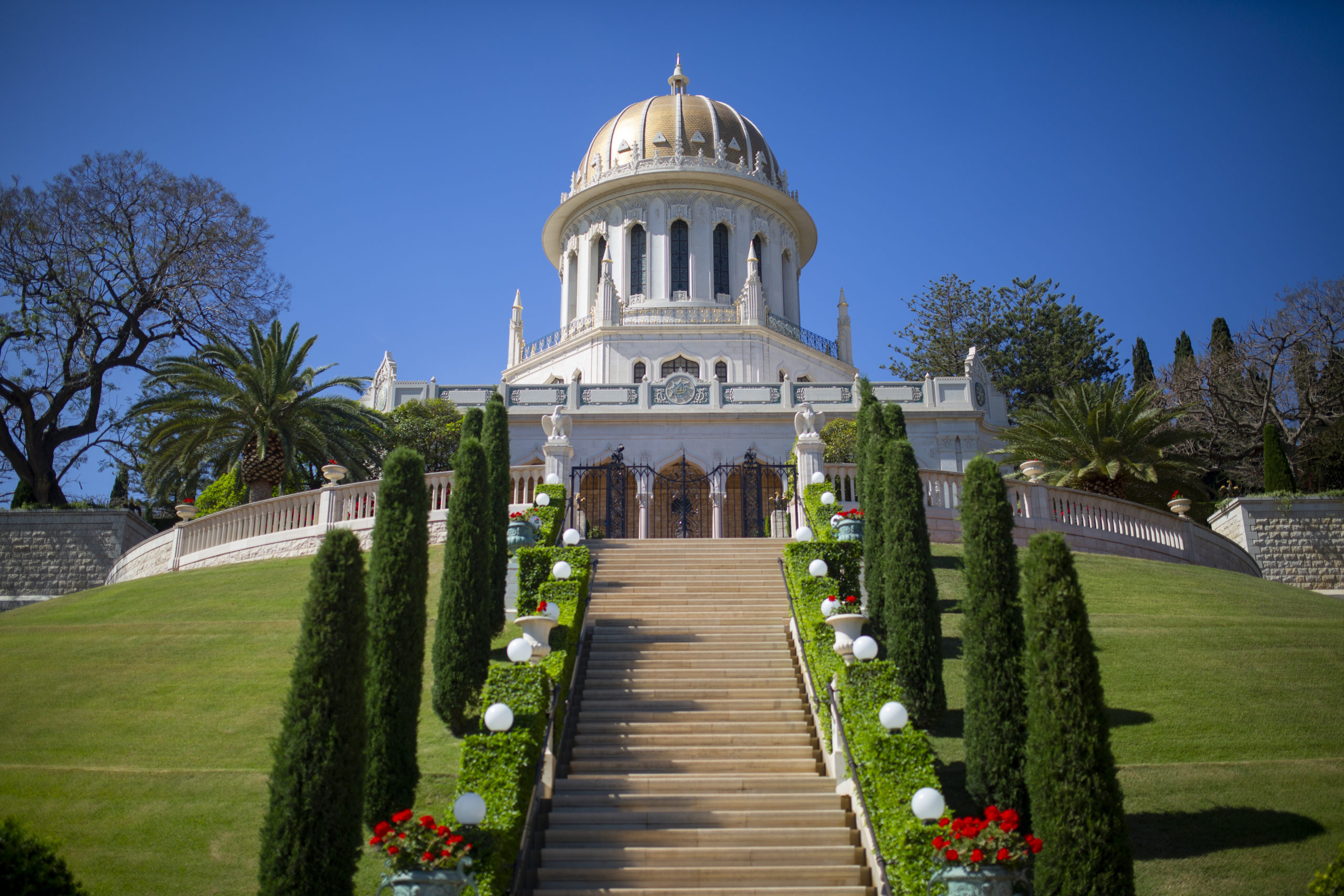Two hundred years ago, a Child was born Whose life and work were to revolutionize human history. His name was Siyyid ‘Alí-Muhammad, and He would come to be known to history as the Báb. The setting of His birth was a modest house in Shíráz, a city in southern Iran known for its renowned poets and its gardens of unsurpassed beauty. As the bicentenary of His birth is being celebrated by the members of a world community in neighborhoods and villages across the planet, it is timely to recall the circumstances surrounding His appearance and to reflect on the significance of His mission. Bahá’u’lláh, the Founder of the Bahá’í Faith, Himself born two years earlier, lauded the Báb as Mine own previous Manifestation
1See Gleanings from the Writings of Bahá’u’lláh, no. CXV; Days of Remembranc, no. 37, par. 1. and paid tribute to Him in these words:
No understanding can grasp the nature of His Revelation, nor can any knowledge comprehend the full measure of His Faith ….All else save Him are created by His command, and move and have their being through His law. He is the Revealer of the divine mysteries, and the Expounder of the hidden and ancient wisdom.2The Kitáb-i-Íqán, page 243
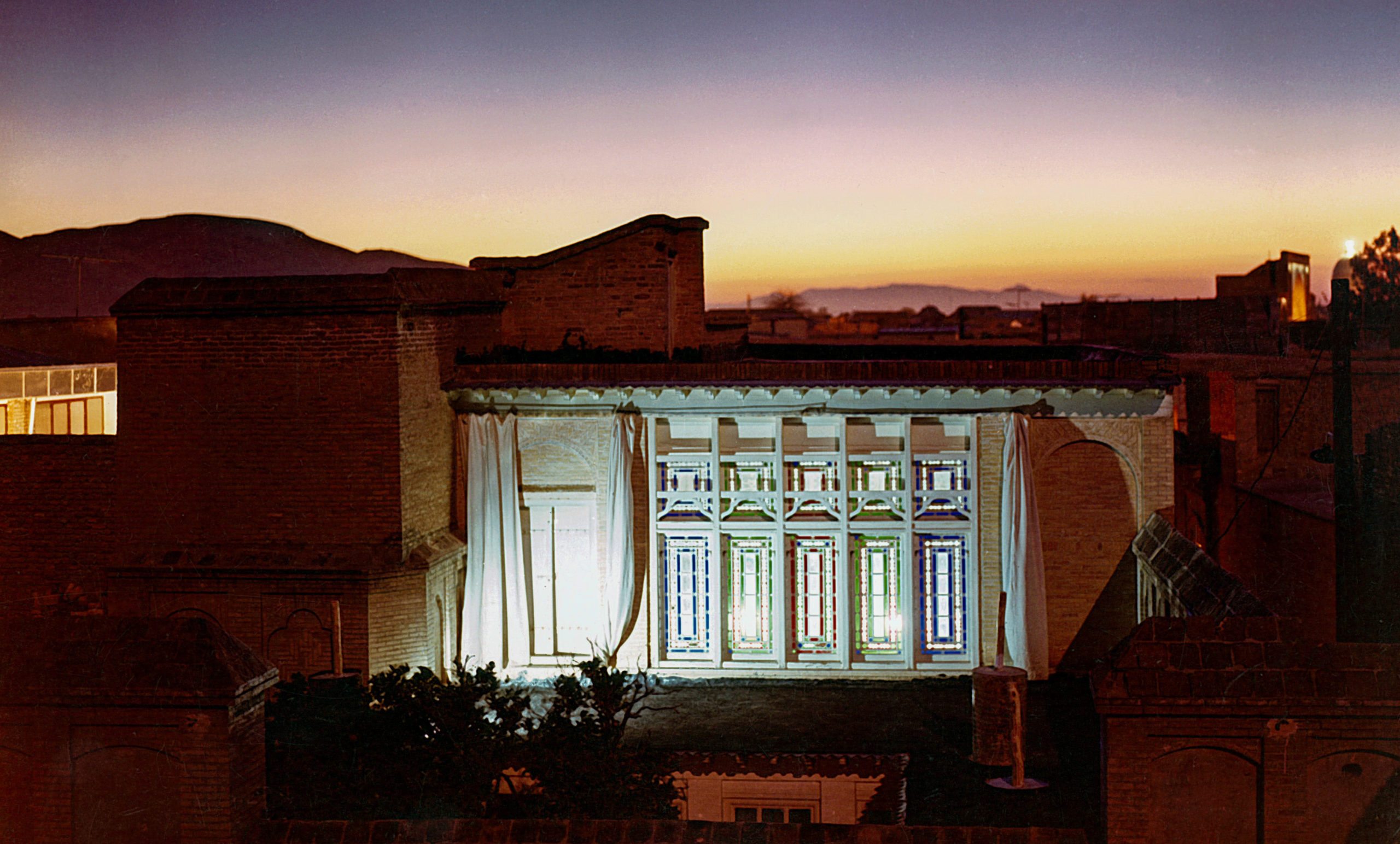
Nineteenth-century Persia, once the cradle of a great civilization, was steeped in ignorance and corruption, the lives of its masses marked by disillusionment and hopelessness. Nor was the world at large faring much better, subject to the blights of war, imperialism, and slavery, and suffering the oppression of prejudice, growing materialism, and loss of faith. Into this darkness came the blazing figure of the Báb, shedding light upon the world and guiding a lost humanity in a new direction. Eulogizing the night on which the Báb was born, Bahá’u’lláh writes:
Blessed art thou, O night! For through thee was born the Day of God, a Day which We have ordained to be the lamp of salvation unto the denizens of the cities of names, the chalice of victory unto the champions of the arenas of eternity, and the dawning-place of joy and exultation unto all creation.3Days of Remembranc, no. 40, paragraph 2.
Human and Divine Stations
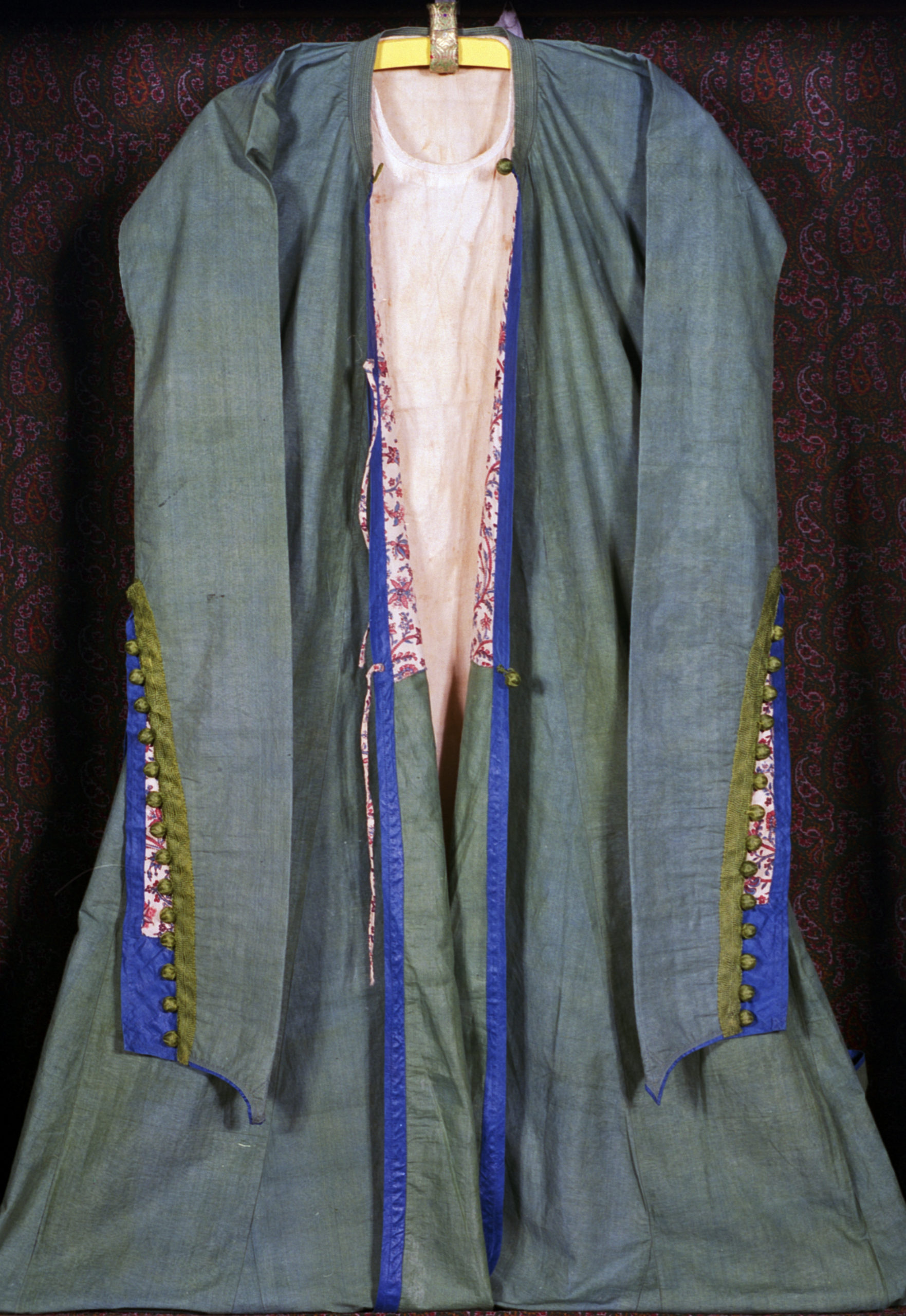
The Manifestations of God have two stations. The first is Their human station, the station of individual characteristics and temporal limitations; they love, suffer, and die, as do all human beings. The second is their divine station, one in which they manifest the majesty and power of God, in which their voice is the voice of God Himself. The Báb, while sharing this dual station with all the Prophets of the past, was unique in having a twofold mission, as the Bearer of a wholly independent Revelation and the Herald of One still greater than His own.
4God Passes By, page 27. His life and Writings are thus marked by a unique richness arising out of this twofold mission, which, in the words of Shoghi Effendi, constitutes the most distinctive feature of the Bahá’í Dispensation
5World Order of Bahá’u’lláh, page 123. –the appearance of two Manifestations of God in close succession.
The complementary nature of the human and the divine stations is clearly visible in the person of the Báb. He was a merchant by profession; He did not belong to any of the ecclesiastical orders of His time and had not acquired the learning current among them. His only schooling was what He received as a child in a traditional primary school, where children were taught to read the Qur’án and little else.6H.M. Balyuzi, The Báb: The Herald of the Day of Days, pages 33–40. Yet, in the course of six short years, from the time He announced His mission in 1844 until His martyrdom in 1850, voluminous writings, revealed with unimaginable rapidity, flowed from His pen. He states that He revealed no less than a thousand verses within the space of five hours,
limited only by the capacity of His amanuensis to set down His words. 7Selections from the Writings of the Báb, page 82. The power of His Writings, coupled with the meagerness of His schooling, is, as He Himself attests, proof of His innate knowledge and divine mission:
God beareth Me witness, I was not a man of learning, for I was trained as a merchant. In the year sixty81260 A.H. (1844 A.D.). God graciously infused my soul with the conclusive evidences and weighty knowledge which characterize Him Who is the Testimony of God—may peace be upon Him—until finally in that year I proclaimed God’s hidden Cause and unveiled its well-guarded Pillar, in such wise that no one could refute it.9See Selections from the Writings of the Báb, page 12.
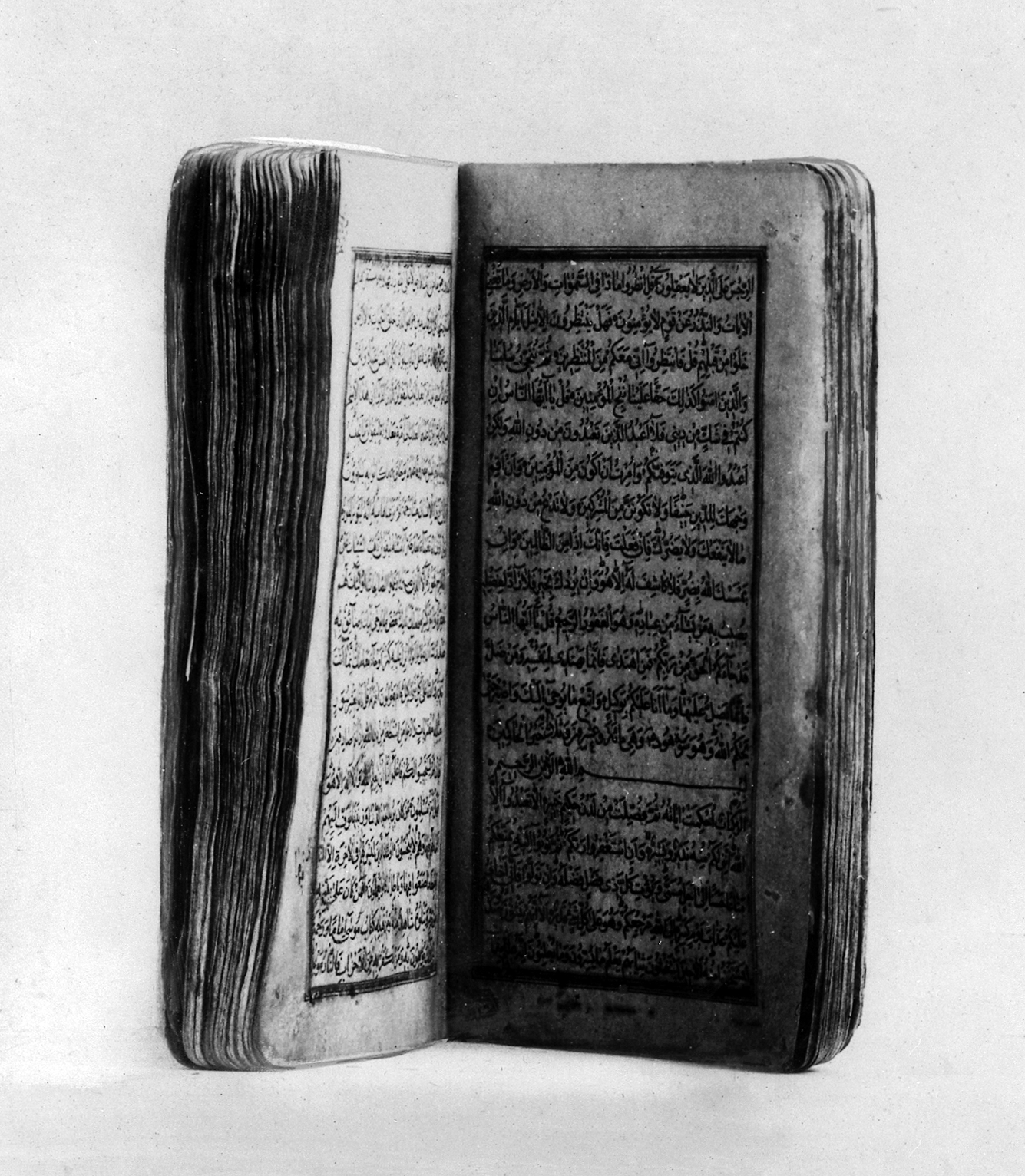
The Revealer of these words, the gentle, the youthful and irresistible person of the Báb
was matchless in His meekness, imperturbable in His serenity, magnetic in His utterance.
10God Passes By, page xiv. He exemplified honesty and fair-mindedness in His business dealings and was gracious and generous towards His family and associates. His tenderness and consideration for His mother and His wife are poignant. A letter He wrote to His wife, Khadíjih Bagum, reflects His deep affection for her:
My sweet love, may God preserve thee. God is my witness that since the time of separation sorrow has been so intense that it cannot be described.11H.M. Balyuzi, Khadíjih Bagum: The Wife of the Báb (Oxford: George Ronald, 1981), page 36.
At the same time, He addressed the people of the world and the rulers of His day with power and authority. Summoned to an examination of His claim before the assembled dignitaries of the land, the Báb, having seated Himself in the place of honor that had been reserved for the heir to the throne, gave His celebrated answer
to the question put to Him by that assembly, Whom do you claim to be?
:12The Dawn-Breakers, page 315.
I am, I am, I am the Promised One! I am the One Whose name you have for a thousand years invoked, at Whose mention you have risen, Whose advent you have longed to witness, and the hour of Whose Revelation you have prayed God to hasten. Verily, I say, it is incumbent upon the peoples of both the East and the West to obey My word, and to pledge allegiance to My person.13God Passes By, page 21.
He fearlessly proclaimed His mission in countless Tablets revealed by His pen, among them these words with which He addressed Muḥammad Sháh, the reigning monarch of Persia, from His prison cell in the fortress of Máh-kú:
I am the Primal Point from which have been generated all created things. I am the Countenance of God Whose splendour can never be obscured, the Light of God Whose radiance can never fade. Whoso recognizeth Me, assurance and all good are in store for him .…14Selections from the Writings of the Báb, page 12.
The Writings of the Báb
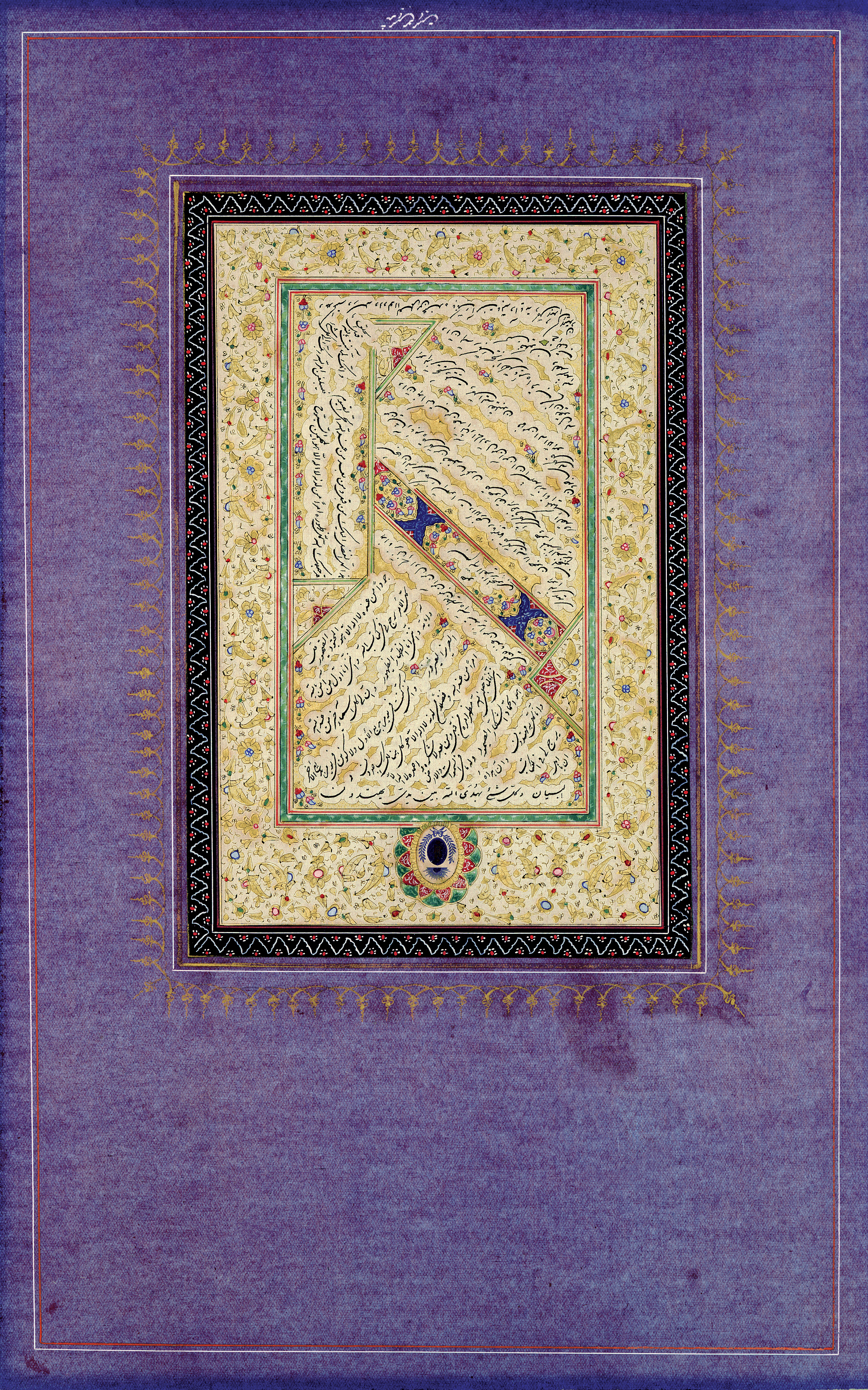
The Báb affirms that the verses revealed by a Manifestation of God are the greatest proof of His mission. His own vast Writings, comprising over two thousand Tablets, epistles, prayers, and philosophical treatises,15Selections from the Writings of the Báb (Wilmette: Bahá’í Publishing Trust, 2006), pages 96–97. were conclusive and sufficient testimony of His truth for thousands who came into contact with them. While His Writings are complex, unconventional, and at times esoteric, they are also possessed of a power that penetrates the hearts. They restructured the thoughts of their readers, so that they could break free from the chains of obsolete beliefs and inherited customs.
There is remarkable order and method in the Writings of the Báb. He Himself classified them in terms of five modes of revelation: divine verses, prayers, commentaries, rational discourse—written in Arabic—and the Persian mode, which in turn contains each of the other four. Within them, there is a complex but coherent system of symbols (including the symbolism of letters and numbers), extensive quotations from and allusions to the Qur’án and Islamic traditions, and references to concepts from Shaykhí 16The Shaykhí school, founded by Shaykh Ahmad-i-Ahsa’i, emerged in 19th century Iran as a movement within Shi’ah Islam. discourse. The Báb’s works are, moreover, linguistically innovative, distinguished by departures from grammatical conventions and neologisms.17See Nader Saiedi, Gate of the Heart (Waterloo: Wilfrid Laurier, 2008), page 26. They attempt, as one writer puts it, to mine words for more than the meaning which is bound to them by usage and etymology.
18Todd Lawson, The Dangers of Reading: Inlibration, Communion and Transference in the Qur’án Commentary of the Báb, in Scripture and Revelation, edited by Moojan Momen (Oxford: George Ronald, 1997), page 197 The complexity of the ideas and their philosophical and mystical depth, together with the uniqueness of their language, make the Báb’s texts difficult to understand but also account for their richness, beauty, and fascination.
The Writings of the Báb range from brief personal letters written to members of His family to the Kitáb-i-Asmá’, a book of more than three thousand pages, in which He discusses the names and attributes of God and how all of reality can be spiritualized through the recognition of the Source of divine revelation.19Nader Saiedi, Gate of the Heart, page 36. His works seek to reconcile the life of the individual soul to the process of history, by asserting the potential and ultimate meaningfulness of all created things, from the highest to the lowest.
20Todd Lawson, The Dangers of Reading, page 198.
In the first, greatest and mightiest
21God Passes By, page 6. of His books, the Qayyúmu’l-Asmá’, a commentary on the Súrih of Joseph, the Báb goes beyond merely commenting on the Súrih of the Qur’án, but finds in the figure of Joseph the archetype of His—and eventually Bahá’u’lláh’s—suffering and ultimate triumph. The story of Joseph thus becomes a link binding the Dispensations of the Manifestations of God throughout history. Similarly, the Persian Bayán, the Mother-Book of the Bábí Dispensation,
22God Passes By, page 324. is not only the repository of the laws ordained by the Báb, but also the link between the Faith of the Báb and that of Bahá’u’lláh.
The Purpose of Laws
The laws of the Báb are a distinctive feature of His Dispensation. They were designed to abolish at a stroke the privileges and ceremonials, the ordinances and institutions
of the past, and to bridge the gap between an obsolete system and the institutions of a world-encompassing Order destined to supersede it.
23God Passes By, p 59. The laws in the Báb’s early works were closely linked to the laws of Islam. They constituted at times a restatement and at times a restriction on some Islamic laws, thus beginning the process of gradually refashioning them. With the independence of the new Faith established, the laws revealed in His later works, particularly the Persian Bayán, had a different aim.24See Muḥammad Afnán & William S. Hatcher, Western Islamic Scholarship and Bahá’í Origins, Religion 15:1 (1985), 29-51. They were presented as a more definite break from the past, but their ultimate purpose was to pave the way for the future: the Báb was preparing His followers for the Revelation of Bahá’u’lláh.
Thus, the fundamental purpose of the Bayan is twofold. The first is to explain that the recognition of God and of the shared truth of divine religions can be achieved only through the recognition of His Messenger in every age and by adherence to His laws and ordinances: True knowledge, therefore, is the knowledge of God, and this is none other than the recognition of His Manifestation in each Dispensation.
25Selections from the Writings of the Báb, page 89. The second purpose is to herald the coming of Bahá’u’lláh, the Promised One designated by the Báb as Him Whom God shall make manifest, about whom He writes: The Bayán is, from beginning to end, the repository of all of His attributes, and the treasury of both His fire and His light.
26Selections from the Writings of the Báb, page 101. The laws of the Bayán are formulated to promote and clarify this twofold purpose. For example, the law enjoining the believers to repeat ninety-five times each day the name of God, the All-Glorious (Alláh’u’Abhá)—a law later confirmed by Bahá’u’lláh—was meant to enable the one reciting it to attain to divine guidance so that he would recognize the Promised One when He appeared.
The Báb made the implementation of His laws subject to the sanction of Him Whom God shall make manifest, while at the same time making it clear that His advent was near at hand. In other words, the laws of the Báb created a bridge between the religious dispensations of the past and that of Bahá’u’lláh. Among the laws of the Bahá’í Faith that are based on the teachings of the Báb are those of pilgrimage, marriage, burial, and inheritance, the law of Huqúqu’lláh, and the Badí‘ calendar.27A calendar consisting of nineteen months of nineteen days each, the years organized into cycles of nineteen years and periods of 361 years.
A calendar brought by a Manifestation of God is more than a practical tool; it gives meaning to the passage of time and the movement of history. In its letter announcing the common implementation of the Badí‘ calendar throughout the Bahá’í world, the Universal House of Justice writes:
The adoption of a new calendar in each dispensation is a symbol of the power of Divine Revelation to reshape human perception of material, social, and spiritual reality. Through it, sacred moments are distinguished, humanity’s place in time and space reimagined, and the rhythm of life recast.28Letter dated 10 July 2014 to the Bahá’ís of the World.
The implementation of the calendar initiated by the Bab marks, therefore, a historic step in … the unfoldment of Bahá’u’lláh’s World Order,
29Letter dated 10 July 2014 to the Bahá’ís of the World. that same Order which the Báb extolled in the Bayán when He wrote, Well is it with him who fixeth his gaze upon the Order of Bahá’u’lláh and rendereth thanks unto his Lord!
30The World Order of Bahá’u’lláh: Selected Letters (Wilmette: Bahá’í Publishing Trust, 1991, 2009 printing), p. 147.
Striving for Perfection
The Báb exhorted His followers to display the highest degree of purity and refinement, both outwardly and inwardly, so that they would be worthy of receiving Him Whom God shall make manifest when He appeared. The promotion of excellence is a salient and recurring theme in His Writings. In the Persian Bayán, He defines the most perfect state of each thing as its paradise and writes:
He hath ordained for each thing that they who possess power over it should raise it to its highest station of perfection, so that it may not be deprived of its own Paradise.31Authorized translation of an excerpt from the Persian Bayán.
Although the Báb was condemned to a life of exile and imprisonment, yet, in the midst of His sufferings, His life was characterized by the highest degree of refinement and virtue and by His love of beauty32For more on this theme, see Moojan Momen, Perfection and Refinement: Towards an Aesthetics of the Báb, in Lights of ‘Irfán: Studies in the Principal Bahá’í Beliefs, Book Twelve (Darmstadt: ‘Asr-i-Jadíd Publisher, 2010), pages 221–243., which is evident in His exquisite handwriting. One example of His calligraphy is a beautiful scroll on which were inscribed, in the form of a pentacle, no less than three hundred and sixty derivatives of the word Bahá.33God Passes By, page 69.
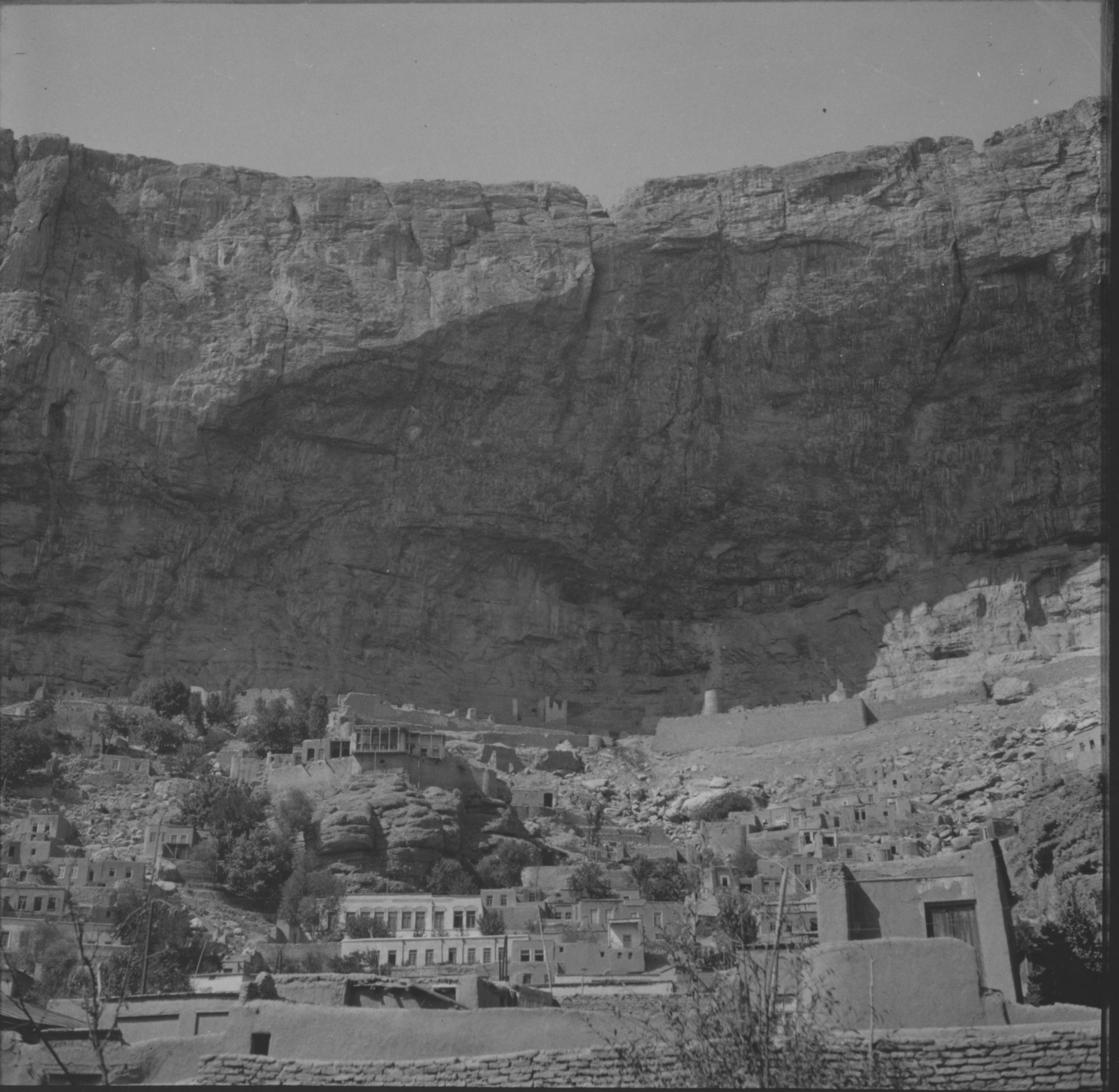
The prison of Máh-kú, the first of two prison fortresses where He spent His last years, was a dungeon on a mountain top,
so remote, so inhospitable and dangerously situated a corner of the territory of the Sháh,
34The Dawn-Breakers, page 245. in which His companions were two men and four dogs.
35Ibid, page 248. In His presence there [was] not at night even a lighted lamp!
36Selections from the Writings of the Báb, page 87. And yet, in such a place, the Báb’s qualities of rare nobility and beauty, His gentle yet forceful personality, and His natural charm, combined with infinite tact and judgment, won over almost all with whom He was brought into personal contact, often converting His gaolers to His Faith and turning the ill-disposed into admiring friends.
37The Dawn-Breakers, Introduction, page xxxiii.
The life and character of the Báb until the last moments of His life reflected the perfect Light of Which He was the personification. ‘Abdu’l-Bahá has said of the Báb:
This illustrious Being arose with such power as to shake the foundations of the religious laws, customs, manners, morals, and habits of Persia, and instituted a new law, faith, and religion. Though the eminent men of the State, the majority of the people, and the leaders of religion arose one and all to destroy and annihilate Him, He single-handedly withstood them and set all of Persia in motion. How numerous the divines, the leaders, and the inhabitants of that land who with perfect joy and gladness offered up their lives in His path and hastened to the field of martyrdom! The government, the nation, the clergy, and prominent leaders sought to extinguish His light, but to no avail. At last His moon rose, His star shone forth, His foundation was secured, and His horizon was flooded with light. He trained a large multitude through divine education and exerted a marvellous influence upon the thoughts, customs, morals, and manners of the Persians.38Some Answered Questions, Part 1: On the Influence of the Prophets in the Evolution of Humanity: 8. The Báb.
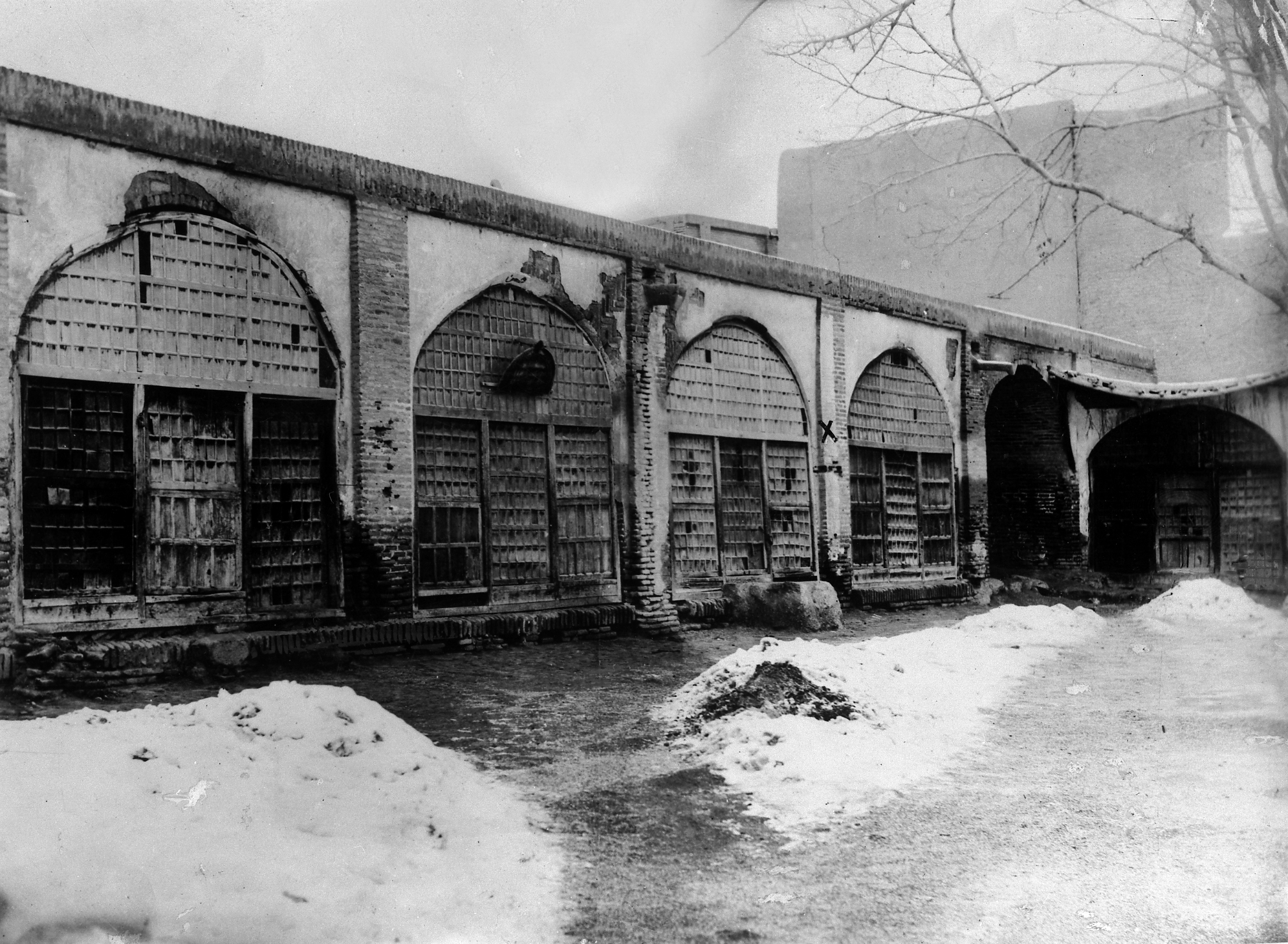
Him Whom God Shall Make Manifest
Through His unique combination of kindness, heroism, and majesty, the Báb inspired the selfless allegiance and wholehearted devotion of thousands of followers. Owing to His influence, these men and women not only broke with centuries-old traditions but also laid down their lives to help usher in the new age the Báb had come to inaugurate. Yet, the Object of this matchless adoration directed His own devotion and allegiance towards Bahá’u’lláh, Whose advent He had come to herald. In the Qayyúmu’l-Asmá, the Báb addresses Bahá’u’lláh in these words:
O Thou Remnant of God! I have sacrificed myself wholly for Thee; I have accepted curses for Thy sake, and have yearned for naught but martyrdom in the path of Thy love. Sufficient witness unto me is God, the Exalted, the Protector, the Ancient of Days.39Selections from the Writings of the Báb, page 59.
The expression of Bahá’u’lláh’s praise for the Báb is equally moving. In the Kitáb-i-Íqán, writing about His own tribulations and sufferings, Bahá’u’lláh proclaims:
Amidst them all, We stand, life in hand, wholly resigned to His will; that perchance, through God’s loving-kindness and His grace, this revealed and manifest Letter40Bahá’u’lláh. may lay down His life as a sacrifice in the path of the Primal Point, 41The Báb. the most exalted Word.42The Kitáb-i-Íqán: The Book of Certitude (Wilmette: Bahá’í Publishing Trust, 2003, 2008 printing), page 252.
In the Revelation of the Báb—marked by a profound recasting of the purpose of religion, by devotion to perfection and excellence, and by utter self-sacrifice—one finds the seed, endowed by the Hand of Omnipotence with such vast potentialities
that was destined to germinate in the form of the still more compelling Revelation
43God Passes By, page 54. of Bahá’u’lláh. The Twin Holy Days marking the birth of the Báb and the birth of Bahá’u’lláh, falling on successive days according to the lunar calendar and accounted as one in the sight of God,
are fitting occasions to reflect on the distinctive characteristics of the life and teachings of the Báb and on their relationship to the message of Bahá’u’lláh.
